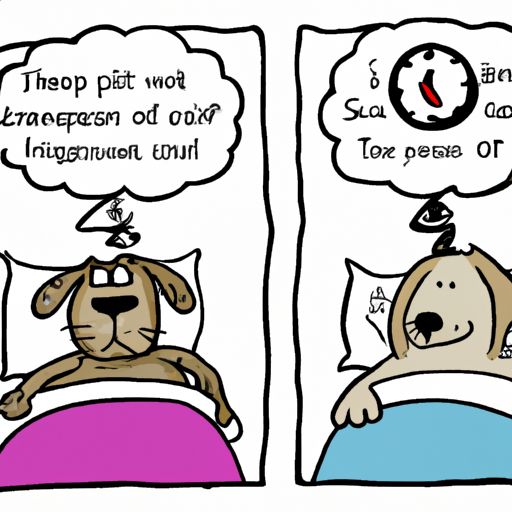If you’re a pet parent, you may have often wondered why your beloved furry friends seem to be in a perpetual state of slumber. It’s not laziness, as some might think. In fact, there are several scientific reasons behind the seemingly excessive sleep of dogs and cats. In this article, we will uncover these reasons, shedding light on the sleep patterns of our pets and how it impacts their health and wellbeing.
Table of Contents
1. Understanding Sleep in Dogs
2. Understanding Sleep in Cats
3. Factors Influencing Pet Sleep
4. Impact of Excessive Sleep
5. Frequently Asked Questions
Key Takeaways
– Dogs and cats sleep more than humans due to several factors, including their metabolic rate, activity level, and size.
– The sleep cycle of dogs and cats differs from humans, with more time spent in light sleep.
– Excessive sleep can be a sign of health issues in pets.
– It’s important to monitor your pet’s sleep patterns and consult a vet if any drastic changes are noticed.
Understanding Sleep in Dogs
Dogs, unlike humans, have a different sleep cycle. They sleep more but in shorter, more frequent bursts. This is a trait ingrained from their wild ancestors who needed to be alert frequently for survival. On average, dogs sleep for about 12-14 hours a day. However, this can vary depending on factors like age, breed, and activity level.
The American Kennel Club provides an excellent guide on understanding your dog’s sleep pattern. Puppies, because of their high energy expenditure, tend to sleep for up to 20 hours a day. On the other hand, older dogs may also sleep more due to decreased energy levels or health issues.
Understanding Sleep in Cats
Cats are notorious for their extensive sleep durations, averaging around 15 hours a day, with some cats even reaching up to 20 hours. This is largely due to their nature as predators. Cats, being crepuscular animals, are most active during dawn and dusk, times when their prey is most likely to be active.
This article provides a deeper dive into understanding your cat’s sleep patterns. It’s important to note that while cats sleep a lot, a significant portion of their sleep is light sleep, allowing them to wake up instantly if needed.
Factors Influencing Pet Sleep
Several factors influence the amount of sleep a dog or cat may need:
- Age: Younger animals tend to sleep more as they grow and develop, while older animals may sleep more due to decreased energy levels.
- Size: Larger breeds of dogs tend to sleep more than smaller breeds.
- Activity Level: Pets that are more active or have high-energy levels will need more sleep to recover.
- Health: Health issues can cause your pet to sleep more or less than usual.
Impact of Excessive Sleep
While it’s normal for dogs and cats to sleep more than humans, a sudden change in their sleep pattern might be a cause for concern. Excessive sleep can be indicative of health issues like diabetes, hypothyroidism, or depression. If you notice any drastic changes, it’s advisable to consult with a vet.
On the website OneTopDog, you can find several useful articles on pet health, such as this one on common health issues in pets and this one on how nutrition can impact your pet’s energy levels.
Frequently Asked Questions
1. Why does my pet sleep so much?
Several factors can influence your pet’s sleep, including age, size, activity level, and health.
2. Should I be worried if my pet is sleeping more than usual?
A sudden change in sleep patterns could be a sign of underlying health issues. If you notice such changes, it’s best to consult a vet.
3. How can I ensure my pet is getting quality sleep?
Maintaining a consistent sleep schedule, providing a comfortable sleeping environment, and ensuring your pet is getting enough exercise and good nutrition can all contribute to quality sleep.
In conclusion, understanding your pet’s sleep patterns can provide valuable insights into their overall health and wellbeing. Always keep a keen eye on any changes, and don’t hesitate to seek professional help if needed. You’re not just a pet owner; you’re a caregiver, providing love and support for your furry friends as they navigate through their lives.



